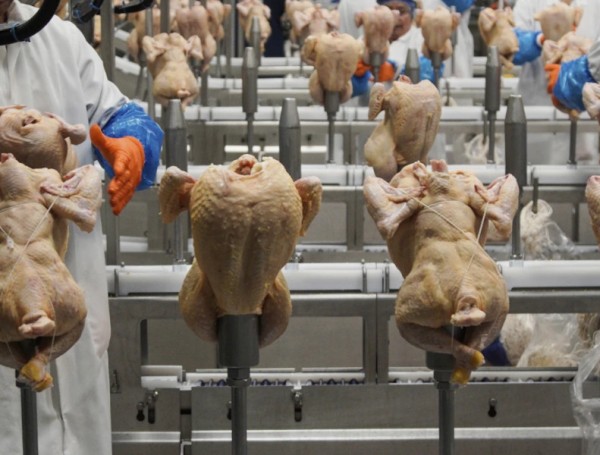DUBAI, United Arab Emirates (AP) — A series of intense Israeli airstrikes shook Yemen's rebel-held capital and a port city early Thursday and killed at least nine people, officials said, shortly after a Houthi missile targeted central Israel.
Thursday’s strikes risk further escalating conflict with the Iranian-backed Houthis, whose attacks on the Red Sea corridor have drastically impacted global shipping. The rebels have so far avoided the same level of intense military strikes that have targeted Palestinian militant group Hamas and Lebanon’s Hezbollah, fellow members of Tehran’s self-described “Axis of Resistance.”
Israel's military said that it conducted two waves of strikes in a preplanned operation that began early Thursday and involved 14 fighter jets. The military said the first wave of strikes targeted Houthi infrastructure at the ports of Hodeida, Salif and the Ras Isa oil terminal on the Red Sea.
Then, in a second wave of strikes, the military said its fighter jets targeted Houthi energy infrastructure in Sanaa.
“After Hamas, Hezbollah and the Assad regime in Syria, the Houthis are almost the last remaining arm of Iran’s axis of evil,” said Israeli Prime Minister Benjamin Netanyahu in a statement released Thursday. “They are learning and they will learn the hard way, that whoever harms Israel pays a very heavy price for it.”
The Houthi-controlled satellite channel al-Masirah said that some of the strikes targeted power stations in the capital, posting videos of flames engulfing one structure, as civil defense workers doused it in water, trying to extinguish the fire.
The strikes on the two power plants will worsen the electricity crisis faced by Sanaa, where those who can afford it run gas generators or get power from private providers because of the city’s long-failing infrastructure.
“Approximately one quarter of Sanaa — particularly shops, stores and commercial facilities — will face immediate and severe disruptions,” said Mohammed al-Basha, a Yemen analyst. “In a city already staggering under a profound economic crisis, 2025 is set to be exceptionally challenging.”
The al-Masirah channel, citing its correspondent in the port city of Hodeida, said that at least seven people had been killed at Salif, while another two had been killed at the Ras Isa oil terminal. Others suffered wounds at the Hodeida port as well, it said.
An Israeli military statement offered no damage assessment.
Rear Adm. Daniel Hagari, an Israeli military spokesman, said the strikes hit energy and port infrastructure, which he alleged the rebels “have been using in ways that effectively contributed to their military action.”
“I suggest the leaders of the Houthis to see, to understand and remember: Whoever raises a hand against the state of Israel, his hand will be cut off. Whoever harms us, will be harmed sevenfold,” Israeli Defense Minister Israel Katz said.
Rebel-held Hodeida, about 145 kilometers (90 miles) southwest of Sanaa, has been key for food shipments into Yemen as its decade-long war has gone on. There's also longstanding suspicion that weapons from Iran have been transferred through the port.
The strikes happened just after Israel's military said that its air force intercepted a missile launched from Yemen before it entered the country’s territory. The waves of strikes on Yemen early Thursday weren't a direct response to the missile hit, said a military official, but rather a planned response to months of Houthi aggression. Israel’s fighter jets were already in the air when the missile was launched.
“Rocket and missile sirens were sounded following the possibility of falling debris from the interception,” the Israeli military said. Sirens sounded near Tel Aviv and the surrounding areas, and a large explosion was heard overhead at the time.
Following an investigation, the military said that the missile's warhead fell on a school building in Ramat Gan, a suburb of Tel Aviv. The warhead exploded, collapsing the building, the military said.
The military official said that the Houthis have fired more than 200 missiles and UAVs, or unmanned aerial vehicles, at Israel since Oct. 7, 2023.
Brig. Gen. Yahya Saree, a Houthi military spokesman, claimed the attack hours later in a prerecorded video statement, saying the rebels fired two of its “Palestine” ballistic missiles at Israel.
Israel previously struck Hodeida and its oil infrastructure in July after a Houthi drone attack killed one person and wounded 10 in Tel Aviv. In September, Israel struck Hodeida again, killing at least four people after a rebel missile targeted Israel’s Ben Gurion airport as Prime Minister Benjamin Netanyahu was arriving back to the country.
American forces have also launched a series of strikes on the Houthis over nearly a year because of Houthi attacks on shipping in the Red Sea corridor. On Monday, the U.S. military's Central Command said that it hit “a key command-and-control facility" operated by the Houthis in Sanaa, later identified as the al-Ardi complex once home to the government's Defense Ministry.
But Israel appears to have carried out Thursday's strikes alone. A U.S. military official, speaking on condition of anonymity to discuss the attacks, said that Washington had no part in them. While the U.S. has carried out strikes on the Houthis in the past, it's also balancing the desires of Saudi Arabia to reach a permanent ceasefire in its stalemated war with the rebels.
The Houthis have targeted about 100 merchant vessels with missiles and drones since the Israel-Hamas war in the Gaza Strip started in October 2023 after Hamas' surprise attack on Israel that killed 1,200 people and saw 250 others taken hostage.
Israel's grinding offensive in Gaza has killed more than 45,000 Palestinians, local health officials say. The tally doesn't distinguish between combatants and civilians.
The Houthis have seized one vessel and sunk two in a campaign that has also killed four sailors. Other missiles and drones have either been intercepted by separate U.S.- and European-led coalitions in the Red Sea or failed to reach their targets, which have also included Western military vessels.
The rebels maintain that they target ships linked to Israel, the U.S. or the United Kingdom to force an end to Israel’s campaign against Hamas in Gaza. However, many of the ships attacked have little or no connection to the conflict, including some bound for Iran.
The Houthis have battled the Saudi-led coalition in the wider Yemen war, which has killed more than 150,000 people, including civilians. The conflict also has created one of the world’s worst humanitarian disasters that's believed to have killed tens of thousands more.
But the Houthis are still standing even as Israel's campaign against Hamas and Hezbollah has decimated those militant groups. Meanwhile, Israel and Iran have exchanged direct fire while the government of Syria, an enemy of Israel since its founding in 1948, collapsed in the face of a rebel advance as the region’s wars have upended Iran’s network of allied proxy groups.



















